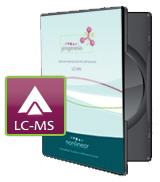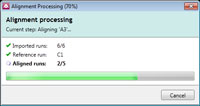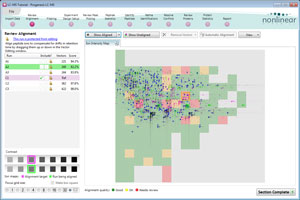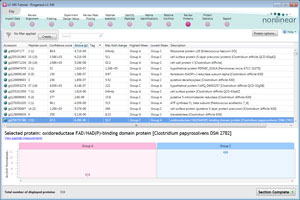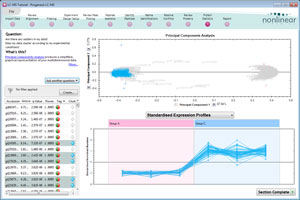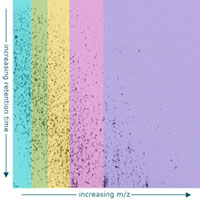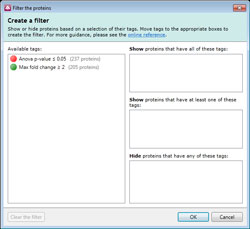Updating from Progenesis LC-MS v2.6 to v4.1
Automated data processing
Reference run selection and alignment can be started, and the runs will be processed automatically as they load . You can leave it to process without any further interaction.
Automatic alignment reference selection
The alignment reference can be selected automatically by the software, increasing the objectivity and reproducibility of your analysis results.
Alignment QA measures and visual display
You can review the quality of automatic alignment, giving you confidence that downstream analysis steps will deliver the most reliable results.
Experiment design set-up from file
Your experiment design can be set up from an imported file which contains your sample groupings.
Fast review of any step in a completed analysis
You no longer have to move stepwise through all of the analysis steps when reviewing your analysis.
Clip gallery
Capture print quality images from some of the most important data displays, which can be used in posters and presentations.
Progenesis improvement program
This opt in program provides information on software usability, amongst other things, to our software engineers which can help direct future development.
Extended workflow for the quantification and identification of proteins
Automatically generate a tabular and graphical view for all of the proteins of interest that you determine within your experiment.
Multivariate statistics on protein expression data
Includes q-value, to control false discovery rates, principal components analysis (PCA), correlation analysis and power analysis.
Protein reports
Report a protein (top-down) as well as a peptide (bottom-up) view of your proteomics experiment.
Gas-phase fractionation
Support for increasing protein and proteome coverage using a gas-phase fractionation approach.
Data formats
Supports direct loading of Agilent .d data as well as the mzML file format.
Fractionated sample analysis
Perform label-free quantification and protein identification to each fraction separately. The fractionation workflow then combines all of these fractions into a single protein based view of the experiment.
Update to normalisation methods
You can normalise to all proteins, a set of housekeeping proteins, or opt not to perform any normalisation.
Improvements to tags and searches
There is a new filter dialog which makes it easier to reduce the data you are viewing so you can focus on the real peptide ions of interest.
Link with scaffold
Import Scaffold results into the software.




